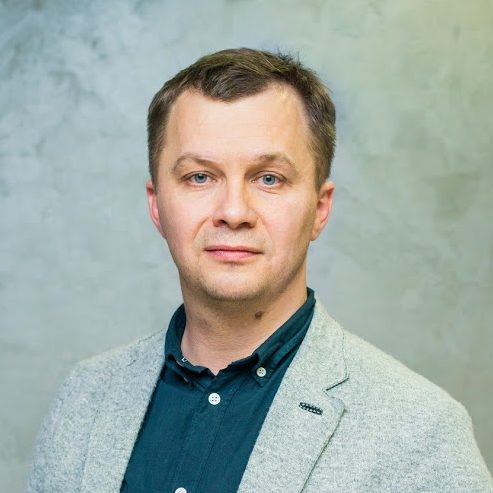The post-Soviet patrimonial state inherited by Ukraine is like an Octopus with multiple tentacles. One is corruption, another is procurement, another is the judiciary, another the civil service and so on. The reform strategy that emerged after 2014 is like trying to control an Octopus by tying up all of its tentacles. Instead, Ukraine needs to have an open and candid debate about the body of the Octopus, not just the tentacles. The problem is political, so are the solutions. It requires changing the way political power is exercised and the way that citizens relate to the state.
In 2014 Ukraine had a revolution which stopped in its tracks an attempt to create an autocratic regime. This was the culmination of the 23-year post-independence struggle to build a different country free of the extractive institutions which had plagued the period of the Soviet Union. These extractive institutions were economic and political and they posed two challenges:
- how to dismantle the socialist economic system with its multi-dimensional distortions and disincentives;
- how to build a modern democratic state.
Ukraine has struggled with both and the failures have cost it dearly. This is easily seen by comparing it to other countries that made the transition at the same time. In 1991 Polish income per-capita was very similar to that of Ukraine. Now, in current US dollars, it is five times larger.
To my friends everything, to my enemies the law
What has gone wrong? On the economic front, for example, while markets and flexible prices were introduced, the government interference in the economy and preferential treatment of some businesses and subgroups of population are still the rule. But the political front is more fundamental. The real reason for the poor relative economic performance since 1991 is that the political transformation has not been deep enough. The Soviet Union bequeathed a highly centralized and non-bureaucratic state. Though there were rules, authority was exercised and resources were allocated outside the rules through informal institutions and parallel structures. There was no sense of the rule of law and discretion and the selective application of policies were valued as a way of controlling society and exercising patrimonial authority. As the former Brazilian President Gertulio Vargas is supposed to have said «to my friends everything, to my enemies the law». Loyalty and friendship were valued more than competence or principles. It was the society of blat.
The real reason for the poor relative economic performance since 1991 is that the political transformation has not been deep enough. The Soviet Union bequeathed a highly centralized and non-bureaucratic state. Though there were rules, authority was exercised and resources were allocated outside the rules through informal institutions and parallel structures.
The State must…
The Soviet Union also bequeathed a society which was used to relate to the state in a patrimonial way. The state was supposed to look after people and provide them with a basic and secure standard of living, in exchange one was supposed to give unquestioning loyalty.
The patrimonial practices of the state were reinforced by these social expectations. It was always going to be a difficult equilibrium to break. Simply creating democracy was not enough, because it instantly turned into a highly patrimonial democracy where the many people, perhaps rationally, anticipated that the logic of the Soviet system and blat would continue. Rationally, because this is exactly what happened in neighboring Belarus, Russia itself, much of the Caucasus and all of Central Asia. This meant that the channel of popular accountability via democratic elections was unlikely to put pressure on the state to change. There was simply no public expectation of such accountability. At the same time the post-independence political elite either took over the logic of the system and tried to use it to their own advantage, like President Yanukovych did. Or they struggled unsuccessfully to deal with the social and economic dysfunctions the system created. Though there has been progress the basic patrimonial logic remains.
The struggle has intensified since 2014. The tidal wave of civil society that overthrew Yanukovych forced a new set of reform priorities onto the political agenda. At the heart of this was an attack on the patrimonial post-Soviet state, or at least the manifestations of these.
The struggle continues
The struggle has intensified since 2014. The tidal wave of civil society that overthrew Yanukovych forced a new set of reform priorities onto the political agenda. At the heart of this was an attack on the patrimonial post-Soviet state, or at least the manifestations of these. What manifestations? Corruption was number one; the new agenda prioritized various types of anti-corruption strategies trying to introduce a serious legal process and punishments for corruption. The agenda didn’t just prioritize punishing corruption, it also tried to take away some of the more obvious instruments which were used in corrupt practices. Hence the reform of the government procurement system, the energy markets, and the banking system. Just to check, public functionaries have been forced to reveal their assets. Next on the agenda was trying to find a way to make the judiciary more independent of the state and political interference. Decentralization started to move authority and resources away from the central state.
These are all important initiatives, but if you think about what the real problem is, they are all indirect attacks on it. The post-Soviet patrimonial state is like an Octopus with multiple tentacles. Each tentacle is a different manifestation of the problem. One is corruption, another if procurement, another is the judiciary, another the civil service and so on. The reform strategy that emerged after 2014 is like trying to control an Octopus by tying up all of its tentacles. If you can tie them all up, this might work, though the Octopus will struggle to break free. But if you can only tie some of them up, the Octopus will keep using the remaining tentacles that are still free and grow new ones. At best you have a very imperfect solution with a constant struggle to keep the tentacles under control.
It is time to cut to the chase
Instead, might it not be better to treat the cause of Ukraine’s problems rather than the symptoms? This entails focusing on the body of the Octopus, rather than the tentacles. At heart it is the political incentives which govern the way the state works that creates symptoms like corruption. If these incentives can be sorted out then corruption, procurement, the judiciary will all take care of themselves. Since this problem is political, so are the solutions. It requires changing the way political power is exercised and the way that citizens relate to the state.
If these incentives can be sorted out then corruption, procurement, the judiciary will all take care of themselves. Since this problem is political, so are the solutions. It requires changing the way political power is exercised and the way that citizens relate to the state.
Changing that sounds easier said than done, which is perhaps the appeal of anti-corruption initiatives. But there are a few obvious things to say. First, it is absolutely clear that Post-Soviet countries that have adopted parliamentary political systems have done much better than those that adopted presidential systems. The concentration of power in a president simply helps to re-produce the personalized patrimonial authority of Soviet days. Second, it is the activism of civil society that distinguishes Ukraine from the authoritarian regimes that surround it. It must build on these strengths, for instance by using processes of participatory budgeting or other institutions which allow people to see that they should benefit from state policy as a right, not a favor.* Third, to the extent possible democratic government should be brought closer to the people. For instance, the demoractic election of governors would give citizens more leverage over the way the state works. (There is a concern that allowing for democratic election of the governors or decentralizing political power in other ways might encourage separatism. One of the authors has argued elsewhere – here and here – that the effect will be in fact the opposite. More decentralized political power will improve incentives for local politicians to support and defend the Ukrainian state.)
Most important, Ukraine needs to have an open and candid debate about the body of the Octopus, not just the tentacles. That is the way to definitively institutionalize the gains that Maidan has brought.
*Some of this has already been done, but much more is required.




